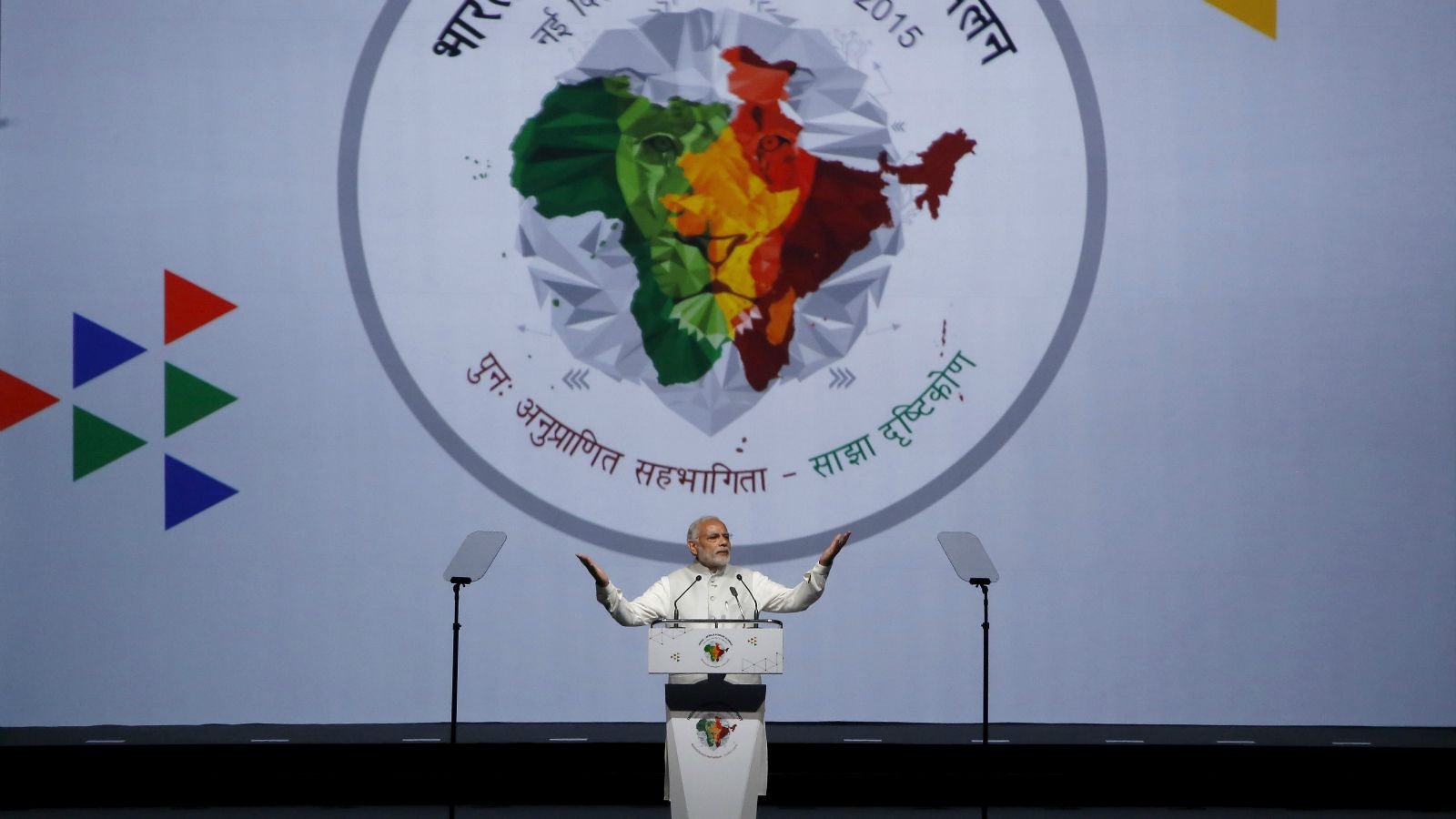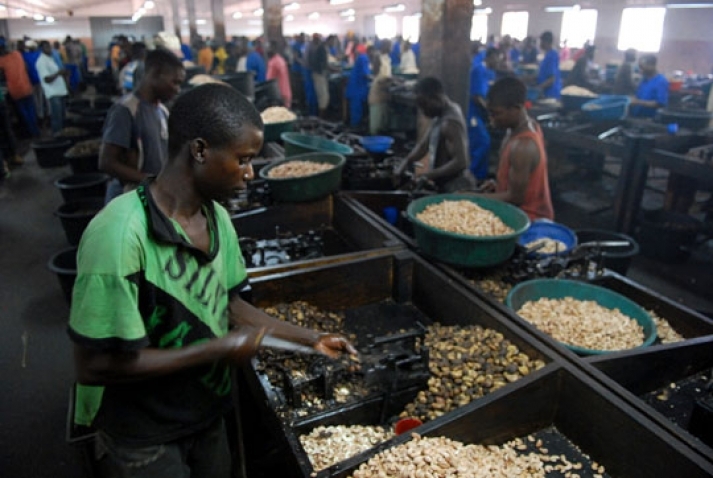
There were his usual rhetorical flourishes, copious quoting and thankfully no abbreviations, but the thrust of Indian prime minister Narendra Modi’s speech to African leaders was clear: In the face of China’s chequebook diplomacy, India will play a different game to further its ground in one of the world’s fastest growing regions.
At the plenary of the India-Africa Forum Summit in New Delhi on Oct. 29, Modi announced a doubling of India’s assistance to African nations, with $10 billion in concessional loans over the next five years. That’s double of what India offered to the region in 2011.
Alongside, there will be more money—$600 million is grant assistance—flowing from New Delhi into African capitals over the next few years for focused spending on key areas such as healthcare, education and technology.
But before opening the coffers, there was much celebration of the historical and cultural links between the two regions, a fact that New Delhi has often emphasised as it seeks to counter China’s growing clout in Africa.
“The currents of the mighty ocean have nurtured the ties of kinship, commerce, and culture through centuries,” Modi said. “It is a partnership beyond strategic concerns and economic benefits. It is formed from the emotional bonds we share and the solidarity we feel for each other.”
Those bonds have come under some strain as China has poured billions into Africa, seeking resources to power its economic growth. Between 2000 and 2011, for instance, Chinese investments in Africa rocketed from $210 million to over $3 billion. And by 2025, Beijing expects to provide $1 trillion of financing to African nations.
Investments between India and Africa, too, have risen in recent years, although much of that has to do with just one country—Mauritius, a tax haven that serves as a conduit for international transactions.
“The two-way trade between India and Africa was around $72 billion in March 2015, but it is still a far cry from the target of $90 billion. But compared to 1995-96 when the trade was just $4 billion, the jump is massive,” Rajrishi Singhal, senior geoeconomics fellow at Mumbai-based think tank Gateway House, told Quartz.
Still, there is a need for broadening India’s engagement with African countries. With Nigeria, for example, India’s relationship is almost entirely centered around one item—oil—when it could potentially encompass much more.
Thankfully, Modi gracefully offered an acknowledgement of India’s past failings, even as he promised to do more.
“There are times when we have not done as well as you have wanted us to,” the Indian prime minister admitted. “There have been occasions when we have not been as attentive as we should be. There are commitments we have not fulfilled as quickly as we should have.”
The 42 African heads of state in the audience would have likely been pleased with what they heard.
“The larger message from the summit and Modi’s speech is that India’s role as a soft power, along with its enhanced monetary power, are here to stay. And we will respect their internal sovereignty and engage with them in development and progress,” Singhal added.
And for India, just the fact that these leaders came together to listen has been a diplomatic victory of sorts.
“We have scored a big diplomatic achievement with the hosting of a full-scale summit, unlike the reduced ones we have had so far,” Kanwal Sibal, former foreign secretary and Indian ambassador to Egypt, told Quartz.
“Hosting an event such as this on Indian soil, gives a chance for African countries to collectively take a decision on what India can do for them.”
Credit: qz.com








